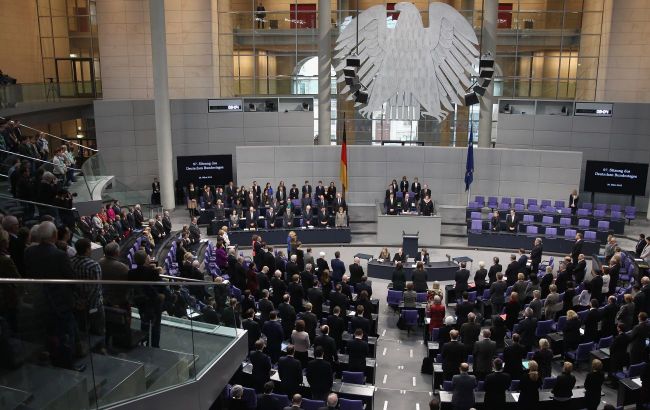Bundestag believes deploying troops to Ukraine will not make all NATO countries conflict parties, reports
 Illustrative photo (Getty Images)
Illustrative photo (Getty Images)
The research service of the lower house of the German Bundestag believes that the deployment of ground troops from one of the NATO countries to Ukraine will not automatically make all other NATO countries parties to the conflict, DPA reports.
As follows from the yet-to-be-published report of the parliamentary expert group, the state in question will become a party to the conflict itself.
"If the NATO member state acts unilaterally - i.e. not within the framework of a previously decided NATO operation and outside NATO military command structures - neither NATO as a whole nor the other NATO partner states become parties to the conflict," the document says.
At the same time, the document emphasizes that the deployment of ground troops to Ukraine is permissible under international law.
The agency notes that Bundestag member Beatrix von Storch asked how the deployment of ground troops from a NATO country would affect the so-called Alliance case, in which NATO members are obliged to support each other.
"If troops of a NATO member state engage in collective self-defence (Article 51, UN Charter) in favour of Ukraine in an existing conflict (between Russia and Ukraine) and are attacked by the other party to the conflict (Russia) in the course of the battle in the conflict area, this does not constitute a case of Art. 5 NATO Treaty," the Bundestag experts says.
They note that Article 5 of the NATO Treaty is related to NATO countries and troops attacked on or over their territory.
"A military engagement of French ground troops in favour of Ukraine would be based on the collective right of self-defence under Article 51 of the UN Charter and would therefore be permissible under international law," the document says.
It is emphasized that Russia's military response against the targets in France, on the other hand, would constitute an armed attack that would establish the actual requirements for the declaration of a NATO alliance case.
Bundestag Research Service
The Research Services is a division of the Bundestag consisting of eight specialized departments with about 100 employees, according to the Bundestag's fact sheet.
Experts research topics at the request of individual members of parliament as well as for Bundestag committees. They prepare summaries, documentation, factual reports, detailed analyses, and expert opinions.
Macron's initiative to send troops to Ukraine
Earlier, French President Emmanuel Macron did not rule out the possibility that NATO might send troops to help Ukraine. This sparked a discussion among Ukraine's allies.
France later clarified that it was not about sending troops directly to take part in combat operations. Some NATO countries said they were ready to consider such a possibility. These include Lithuania, Latvia, Estonia, and Canada.
However, most countries did not support Macron's position. Moreover, according to Western media, Macron's unexpected statement caused even more hostility between him and German Chancellor Olaf Scholz.

